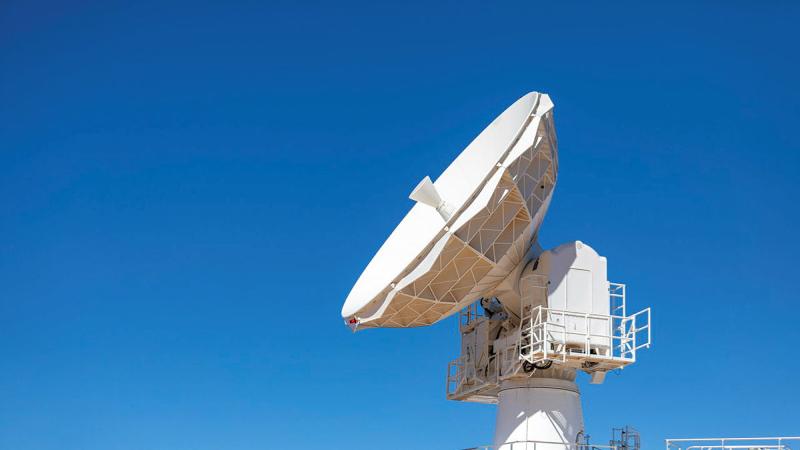Ngarabul and Dharug woman Lynette Marlow, Biripi woman Caitlin Davey and Wadi Wadi woman Brittany Abraham – all current UNE scholars – are our inaugural Lecturers in Indigenous Knowledges.
Assisting First Nations students to navigate university is their primary focus, to help boost engagement, success and retention among the hundreds enrolled*. However, the trio are having just as profound an impact on non-Indigenous students and staff as they work collaboratively to improve cultural awareness, decolonise course content and inform UNE policies.
Brittany, who studied a Bachelor of Nursing and Psychological Science at UNE before completing her Honours in Psychology, is now preparing to embark on a PhD. As a Lecturer in Indigenous Knowledges within UNE’s Faculty of Medicine and Health she is playing an important role in preparing students for clinical placements in Indigenous communities.
“It’s vital that our medicine and health students are educated about how to work with Aboriginal people and understand how to be culturally-responsive practitioners,” Brittany said. “Our broader role wittthin the university is to share culturally accurate and appropriate information regarding Aboriginal and Torres Strait Islander cultures, to reduce stereotypes and focus on the strengths of people from Aboriginal and Torres Strait Islander backgrounds. This is important for everyone.”
Like Caitlin, Brittany works as a tutor with the Oorala Aboriginal Centre – a position that affords valuable insights into the needs of students. In their Indigenous Knowledges Lecturer roles, both women have concentrated on sharing real-life experiences and perspectives with staff, and having practical input into curricular activities. This has included the need for more inclusive learning strategies like oral assessments, cultural sensitivity trigger warnings, and recognition of the importance of cultural responsibilities such as Sorry Business.
“Many of UNE’s lecturers are non-Indigenous,” said Caitlin, who is in the final year of a PhD in Criminology and works as a Lecturer in Indigenous Knowledges within the Faculty of Humanities, Arts, Social Sciences and Education (HASSE). “In the past, rather than stigmatise or offend anybody, lecturers have tended to avoid engaging with Indigenous content. We are helping to provide the tools but also the confidence they need to deliver Indigenous content in a way that is culturally safe and appropriate. Embedding our culture in the curriculum gives all students the opportunity to engage with different ways of seeing the world, which helps to develop more critical thinkers.”
Caitlin has been spearheading the development of best-practice guidelines for unit coordinators to ensure that UNE subjects and teaching resources sensitively reflect the presence of First Nations peoples and acknowledge their rich and broad cultures. Surveys conducted in two faculties will serve as a baseline for future measurements of success.
Promoting greater understanding and appreciation of her culture is what drives Lynette, a former Indigenous rights and justice specialist, lecturer in Indigenous politics and now UNE PhD candidate. A Masters in Social Ecology reinforced Lynette’s belief that First Nations kinship systems, decision-making and land management practices hold potential solutions to many of the environmental, social and political issues we face today.
Her focus as a Lecturer in Indigenous Knowledges at UNE is on personal and group mentoring of First Nations students and strengthening their sense of belonging. “We have a lot of Indigenous students who haven’t lived in Community, who don’t know their mob and can feel dislocated or isolated,” Lynette said. “And I don’t think there is a single First Nations student at UNE who hasn’t experienced some type of intergenerational trauma. They can struggle with the western model of learning, so we have to ensure, at all times, that we are creating empathy and not inciting racism. It’s about giving students back their agency.”
Lynette said the Lecturers in Indigenous Knowledges are fast becoming individuals that students can turn to for information and additional support. By providing guest lectures, workshops and continuing to raise awareness of First Nations cultures, the three lecturers hope to ultimately contribute to a more empathetic and welcoming UNE community.
“This is all about having more respect for First Nations peoples, and not just during NAIDOC Week or on Sorry Days, but filtering Indigenous knowledges through all learning and university experiences,” Lynette said.
All three women are encouraged by the productive conversations and positive changes they are starting to see. They look forward to Lecturers in Indigenous Knowledges being appointed to every UNE faculty.
“Public institutions like UNE play a major role in outlining what individual behaviour is and is not acceptable,” Caitlin said. “We are moving in the right direction, but there is still a lot of work to do.”
And the task is not theirs alone. “While it’s very important to be working alongside Indigenous people, we also need non-Indigenous people to advocate for and become allies of Indigenous peoples,” Brittany said.
*UNE had 978 Indigenous students enrolled in 2022.








